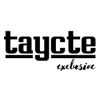Consumers are looking more closely than ever at labels as they eat more healthier, natural foods. For most shoppers, they should be able to believe any health benefits heralded on the packaging because companies are required to have scientific proof backing up their bold statements.
But in an industry besieged by intense competition and changing consumer tastes, food manufacturers sometimes toe the line between truth and a questionable claim to sell a product and distance themselves from their competitors — with the Federal Trade Commission there to catch them if they stray too far. Even knowing they could be subjected to the FTC’s scrutiny, some food and beverage makers still try to get away with bending the truth.
“Companies create these things because they’re hoping to create a message that will stick in the consumers’ minds,” Jonah Berger, a professor at the Wharton School of the University of Pennsylvania who studies how products, ideas and behaviors catch on, told Food Dive.
But do claims like "promotes weight loss" or "more calcium than a glass of milk" really have an impact on the bottom line? Berger said that it's hard to tell whether it will translate to increased sales, but “companies spend a lot of money on this in the hope that it will."
Larger brands generally seem to be immune to the ire of the FTC, but they have been known to push the envelope on occasion. Here are five of the label claims that have been struck down or challenged by the regulatory agency.
-
Kellogg’s Frosted Mini-Wheats
Frosted Mini-Wheats claimed its cereal was clinically proven to improve kids’ attentiveness by nearly 20%. In its case, the FTC expressed concern over several assertions produced by Kellogg, which makes the popular breakfast item.
“What we found was the clinical study that they had first of all compared eating Frosted Mini-Wheats to having just water for breakfast," Mary Engle, the FTC's associate director for advertising practices, told Food Dive. "So it was basically having breakfast versus not having breakfast, which we thought needed to be disclosed.”
The claim also overstated the results. The average attentiveness of a child eating the cereal for breakfast only improved 11%. One in seven kids got the 18% improvement, which the company said was "nearly 20%"

In 2009, the case was settled, and Kellogg was “barred from making claims about the benefits to cognitive health, process, or function provided by any cereal or any morning food or snack food unless the claims were true and substantiated,” according to the FTC.
Within a year, Kellogg’s ad team ran into problems again after they violated the terms of the settlement with a new unsubstantiated claim, this time for Rice Krispies cereal.
The product packaging stated that Rice Krispies cereal “now helps support your child’s immunity,” with “25 percent Daily Value of Antioxidants and Nutrients – Vitamins A, B, C, and E.” This ad campaign was launched at the start of cold and flu season in the fall, implying that eating Rice Krispies Cereal will help protect the consumer from catching these illnesses.
The FTC took action quickly, modifying their previous order for the Frosted Mini-Wheats case, and broadening it to include future claims of any health benefits. If Kellogg violates this order in the future, the Michigan company would have to pay a civil penalty of $16,000 per violation. Kellogg has not made any fraudulent claims since this order was reached.
-
Gerber’s Good Start Gentle Formula
From 2011 to 2014, Gerber Products, a subsidiary of the Nestle, advertised that its Good Start Gentle formula would prevent or reduce the risk for infants to develop allergies. Ads included lines such as “You want your baby to have your imagination…Your smile…Your eyes…Not your allergies.”
"FDA evaluated it and thought there wasn’t very much science to support the claim at all, but Gerber turned that into a gold seal claim.”

Mary Engle
FTC's associate director for advertising practices
In 2009, Gerber petitioned the FDA for permission to make a claim connecting partially hydrolyzed whey proteins (PHWP) to the reduced risk of atopic dermatitis, or eczema, in infants. The FDA consented, but only if Gerber clearly stated there is “little scientific evidence” for the causal relationship. Gerber turned that into approval to claim their product is the “1st and Only” formula that “Meets FDA Qualified Health Claim,” and that it would prevent or reduce the risk of allergies in general.
“What the facts are, is that they submitted their claim to FDA,” says Engle. “FDA evaluated it and thought there wasn’t very much science to support the claim at all, but Gerber turned that into a gold seal claim.”
In October 2014, the FTC charged Gerber with deceptive practices and accused it of lacking scientific evidence to make the general allergy-prevention claims. The matter is currently in litigation.
Kevin Goldberg, vice president and general counsel for Gerber, defended the company when the FTC suit was filed.
“Gerber always has and will continue to treat its mission of delivering nutrition and benefits to infants as its top priority," he told USA Today. "We believe the information conveyed in our marketing is important for parents who have children at risk for atopic dermatitis, the most common allergy in infancy.”
Engle told Food Dive the matter currently is in litigation.
-
Tropicana Healthy Heart Orange Juice
Tropicana claimed drinking two to three glasses a day of its “Healthy Heart” orange juice would produce dramatic effects on blood pressure, cholesterol and homocysteine levels, reducing the risk of heart disease and stroke.
Tropicana ran the “Healthy Heart” ads in 2002, and again in 2004. In July 2002, during the juice maker’s extensive national advertising campaign, FTC staff expressed concern about the claims. Tropicana quickly dropped them, and the FTC didn’t require that it sign a formal order.

In February 2004, Tropicana ran a very similar “Healthy Heart” ad as a two-page spread in Newsweek magazine. In most cases, the FTC takes the scale and reach of an ad campaign into consideration when investigating a claim. Since the agency had already expressed concern in 2002, the FTC challenged the advertising as overstating the heart-healthy benefits in an order, which would fine Tropicana if they ran those claims for a third time.
By June 2005, Tropicana settled FTC charges that it lacked evidence to support its heart and stroke-related claims tied to the orange juice.
Greg Shearson, president of Tropicana Beverages North America, spoke with the L.A. Times when the deal was reached. “The settlement was not an admission that the law has been violated," he said.
Tropicana hasn’t violated the order since then.
-
POM Wonderful
POM Wonderful's 100% Pomegranate Juice and POMx supplements claimed in extensive advertising that the products had "Super health powers ... backed by $25 million in medical research" showing they prevented or treated heart disease, prostate cancer and erectile dysfunction. It even touted scientific research and claims in advertisements, including it’s “40% as effective as Viagra.”
The trouble was POM's studies didn’t support the claims the company was making. POM Wonderful's claims were especially egregious because of their ads, Engle said.
“Most of them touted that they had spent $25, $30 million dollars in research on the product, so they really hammered you over the head with the fact that they had done serious, scientific research on these products, so you could rely on the claims,” she said.
But in reality, Engle said the science was very weak.
POM Wonderful didn’t just drop its ads in 2010 when the FTC charged them with making false and unsubstantiated claims about its products. The case went into litigation and it was ruled that POM Wonderful did not have adequate research to back up its health claims. POM Wonderful appealed the decision, but the order was once again upheld.
“We continue to stand behind our efforts to publicly convey valuable information about the health benefits of POM,” Steven Clark, a company spokesman, told Reuters in May 2016.
In light of POM Wonderful’s claims, the FTC’s complaint included a more severe order that would require the FDA to approve any future health claims that the company's product prevents or treats serious diseases.
-
Kentucky Fried Chicken
Kentucky Fried Chicken claimed in ads that one of its Original Recipe chicken breasts has only 11 grams of carbohydrates and 40 grams of protein. It also claimed that two Original Recipe fried chicken breasts were healthier than eating a Burger King Whopper.
These claims would be true if the consumer took the breading and skin off of the fried chicken breasts before eating them. KFC, a subsidiary of Yum! Brands, failed to include this nutritional information in its advertising.
 Kentucky Fried Chicken
Kentucky Fried ChickenThe FTC charged the restaurant chain in 2004 with false claims about its relative nutritional value, and for claiming its chicken was compatible with a low-carb/high-protein weight loss program. The FTC found two fried chicken breasts have more calories and more than three times the trans fat and cholesterol than a Whopper. It also contained more calories than the popular burger. And neither the Atkins or South Beach diets condone eating breaded, fried foods, the agency said.
Soon after the KFC ads ran, they were criticized by consumers and industry experts alike. The Washington Post reported that Advertising Age wrote an editorial on the campaign, calling them “laughable and damaging,” and encouraged KFC to pull the spots immediately.
KFC settled the case, but did not admit any fault or liability.
Scott Bergren, chief marketing and food innovation officer at KFC, told The Washington Post it agreed to the settlement "to put the issue behind us." He added, "We have always believed our ads to be truthful and factually accurate."
What's next for food labeling claims?
Food manufacturer’s today can glean a good deal of insight from the cases brought against other companies, according to Engle.
“I think it’s important for companies to make sure that their advertisement claims don’t overstate the benefits, that they don’t get ahead of the science.” says Engle. “And if the science is weak or limited, that you can’t have these strong, hard-hitting advertisement campaigns.”
“People no longer care about the claim, they care about the ingredient table, and they have educated themselves to be able to read it intelligently and be able to translate it into what they feel is important to them.”

Sophie Ann Terrisse
Senior adviser with brand management firm 26FIVESpeaker title













